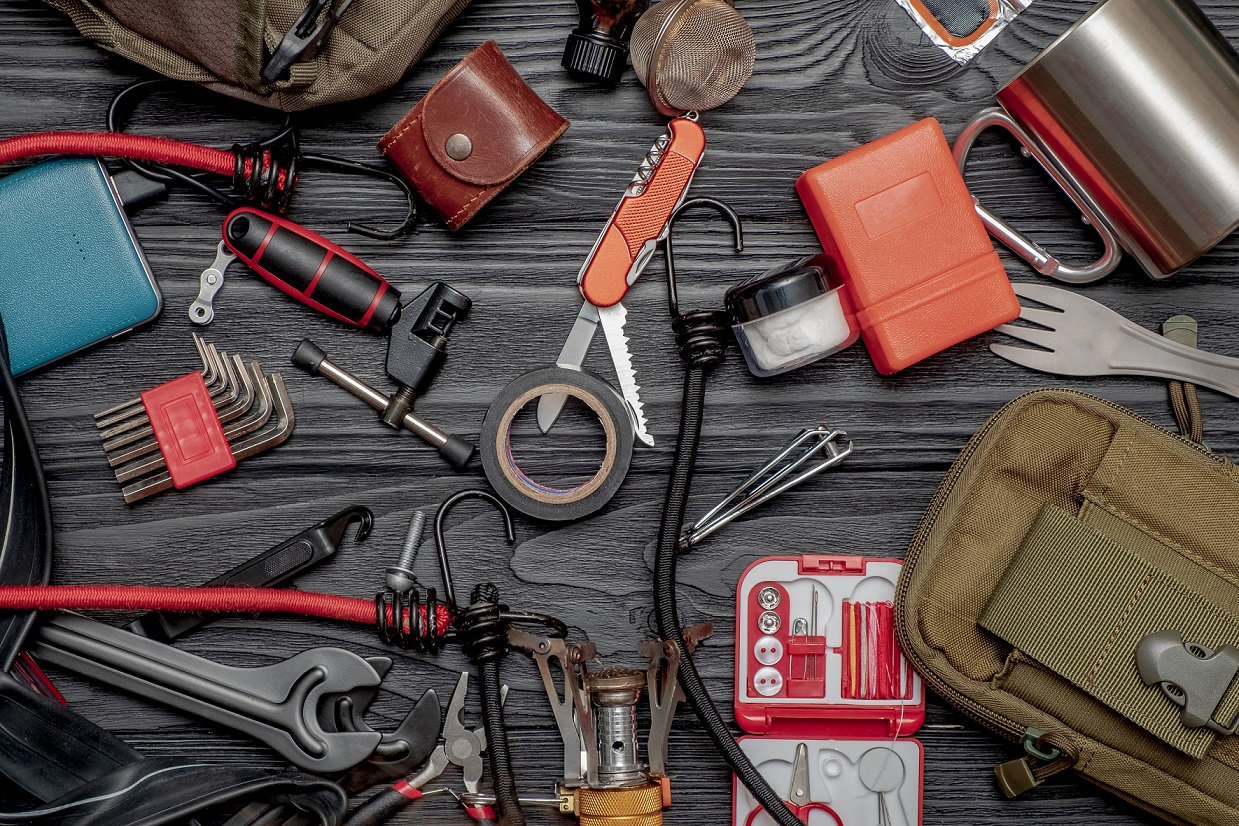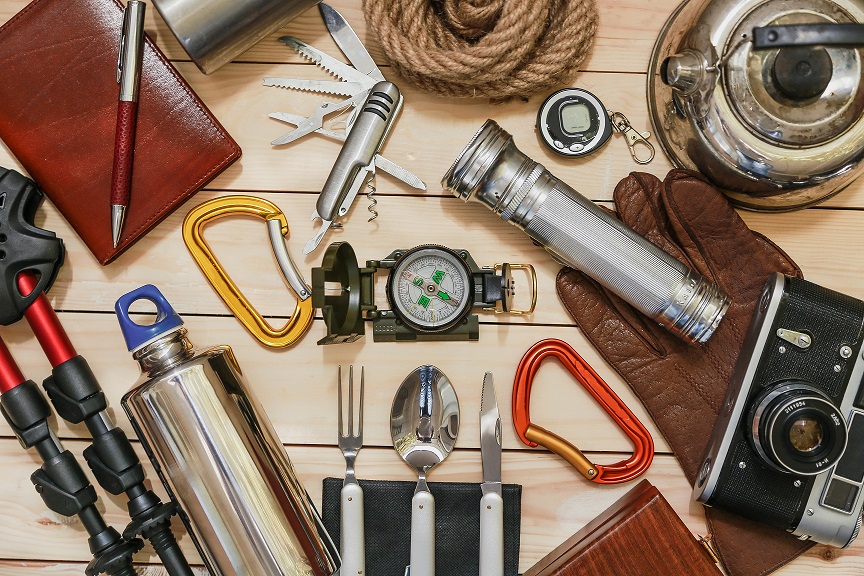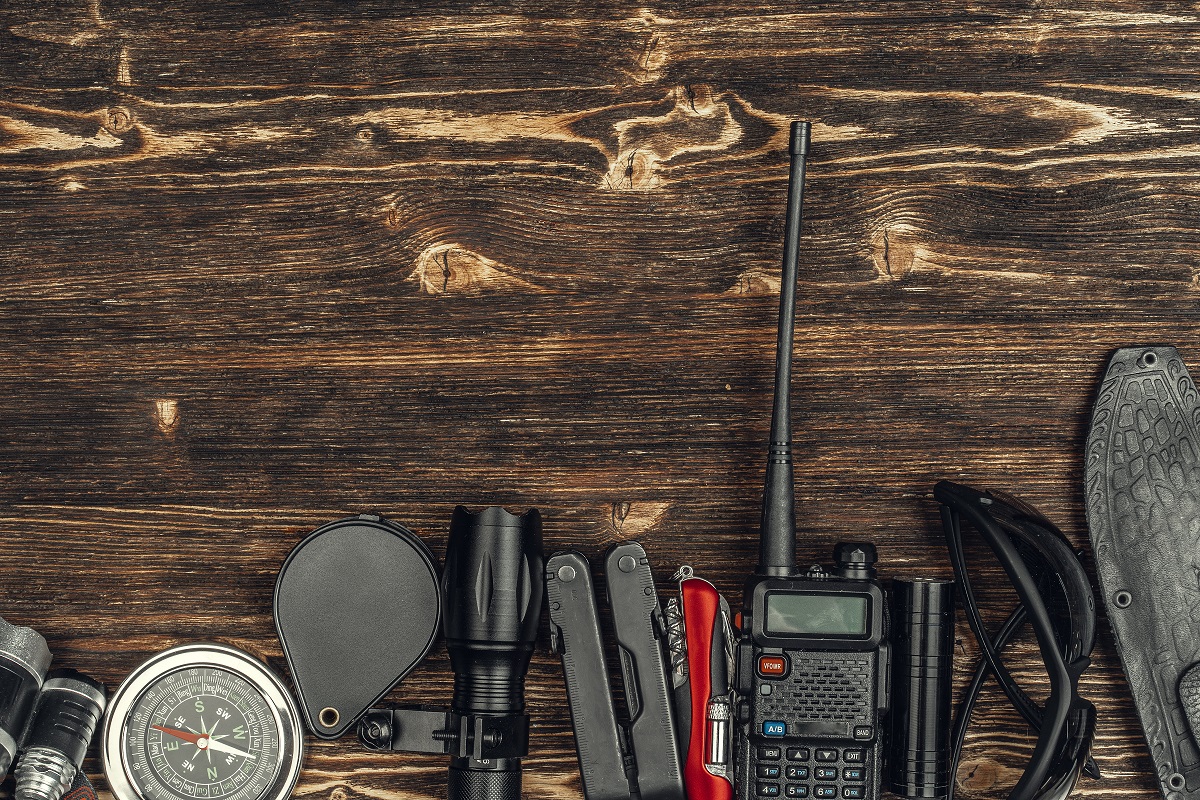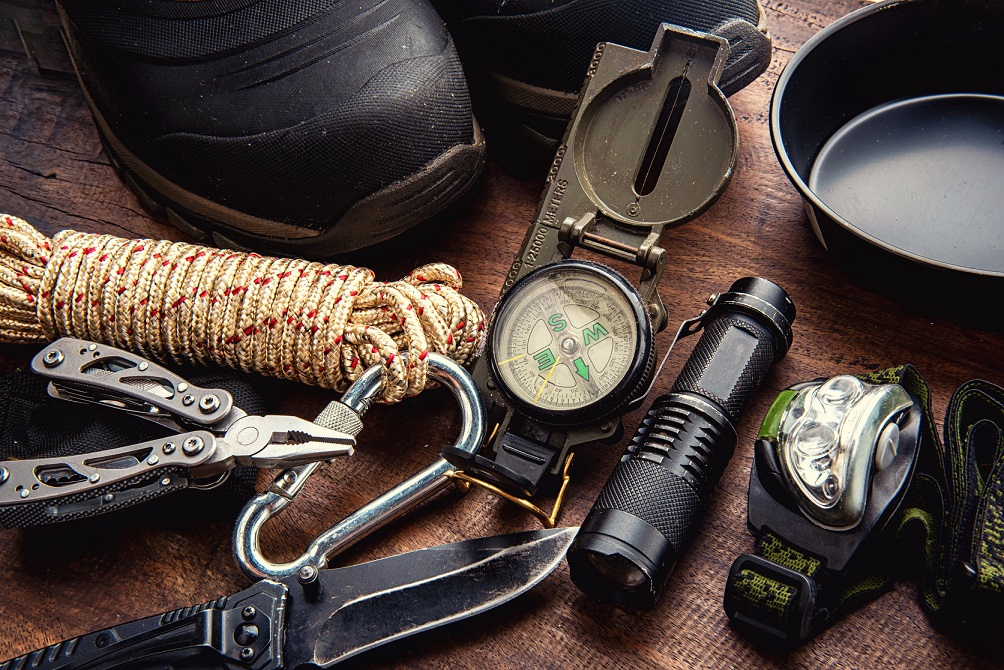When the unexpected happens, will you be ready? Extreme situations, such as a strong tornado blowing away most of the town or a sinkhole gobbling up a home, can happen anytime. That’s why it’s essential to be prepared.
There are various things you can do to be prepared for any scenario that calls for survival. If you don’t know how or where to get started, visit a trustworthy survival wesbite to gain valuable information about survival and the tools you may need in unique situations.
In this article, you’ll learn about some useful survival tools to have in your home.
1. Duct Tape

Most people aren’t aware of duct tape’s versatility and usefulness. For example, it was originally manufactured to keep moisture out of ammunition boxes during World War II. Because of its strength and waterproof properties, soldiers soon found it useful for repairing jeeps and guns, too. They even patched up wounded soldiers with it as temporary solutions until they could get them to a field hospital.
Whether you have to bandage a wound, patch a hole, create a water cup, or fashion a belt—duct tape is helpful when disaster strikes.
2. Maps
An atlas won’t do you much good during a survival scenario, but having a local street map may benefit you if you want to leave for a safer location. A global positioning system (GPS) and Google Maps require battery power and an internet connection to work. And, if you’ve ever used them, you’ll know they sometimes give the wrong directions. This would be detrimental to you and your family in a life-threatening situation.
With traditional paper maps as your backup, you can get out of your town and on a road not often used by others. In the modern era, though, most people have lost the skill of reading paper maps. Therefore, you must study them and learn how to navigate using them.
3. Flashlight
Even if you have generators in case of a prolonged power outage, it’s always wise to keep some quality survival gear, like flashlights, in your home.
Besides, if you have to flee the area, your generator won’t be of much use. A flashlight can easily go into an emergency Backpack. They’re especially useful around camping areas as they can prevent accidental stumbles—and by extension, serious injuries—over uneven surfaces.

Remember to stock up on energy-efficient batteries for your flashlight.
4. Water Filter
You can go without food for some time, but not without clean drinking water. A disaster may affect your local water supply, leaving you without a crucial human need. For this reason, you should keep a water filter in your home for you and your family.
A water filter is an important survival tool, whether you’re in the wilderness or stuck at home. In fact, a good and high-quality water filter doesn’t only have the best filter, but it can also improve the water’s quality as it’ll effectively remove the contaminants.
In terms of capacity, some water filters have cartridges that may purify thousands of gallons of water. Depending on your needs, choose the one that’s suitable for your needs. Just make sure that it’s portable, easy to use, has a long shelf life, requires low maintenance, easy to clean, and comes with a good filtration technology.
5. First Aid Kit
During disasters, accidents are more prone to happen because people will panic. Therefore, you should be prepared to treat possible disaster-related injuries.
Although you can create your own, it’s better to purchase a complete kit as it will contain everything you may need. Make sure your first-aid kit comes with an emergency blanket. If you have a big family, make sure you have enough blankets for everyone.
If a family member is on chronic medication, make sure your first-aid kit has enough of what they need. This is especially crucial if someone suffers from diseases like asthma, or has severe allergies (bee sting allergies, for example).
6. Bottle-Top Propane Stove
Although you can survive with your stored foods, like energy bars, it’s best to eat wholesome meals if you can’t go out for grocery shopping because of a disaster.
Whenever you can’t cook on your electrically-powered appliances, your bottle-top propane stove will come in handy. Make sure to keep one of these in your home, even if you have an outside grill. If you must leave home, you can take the propane stove with you.
7. Survival Multitool
This survival tool is crucial in any survival situation. With its compact form, you can easily take a multitool anywhere you go.
With a multitool, you can cut things quickly. By using a multitool, you may even open your canned goods with ease. It may also come in handy when you want to make an impromptu shelter because you may need pliers, a knife, and a saw. There are also multitools that feature a whistle to signal for help, which makes it easier for rescuers to find and save you.
These days, there are many multitools to choose from. No matter what your preferences are, you don’t need a multitool that’s too expensive. Always choose the item that’s both affordable and capable of helping you. For instance, you can go with a basic multitool that features 14 tools such as can opener, bottle opener, knives, pliers, and screwdrivers.
8. Portable Power Station
More often than not, power outages happen during emergency situations. There are varying degrees of power interruptions: some may last for hours or a day, while others may last for a long time, like when bad weather causes wide-scale damage to power lines.
To keep your devices running when there’s a power interruption, you’ll need a portable power station. It uses a big battery and has an alternating current (AC) outlet to help you charge your device batteries. Many also come with USB ports, which is more useful for modern devices like tablets and smartphones.
To be prepared for emergencies, choose a portable power station with a higher power capacity and make sure it’s rechargeable.
9. Emergency Radio

In case of a natural disaster, it’s likely that you won’t have access to the internet and you’ll probably lose power. The best survival tool for this is a hand-cranked or solar-powered radio to stay informed. It’s also a good idea to get an emergency radio that works as a power bank to charge your cellphone so you can make a call after a disaster.
Conclusion
The key to survival is being prepared for emergencies with simple but effective survival tools in your home, like the ones discussed in this article.
Although you never know where or when an emergency may arise, collecting some survival tools like respirator masks from Mira Safety and having them readily available may come in handy one day. Combined with your basic survival skills and knowledge, such tools can give you an advantage in critical situations.






